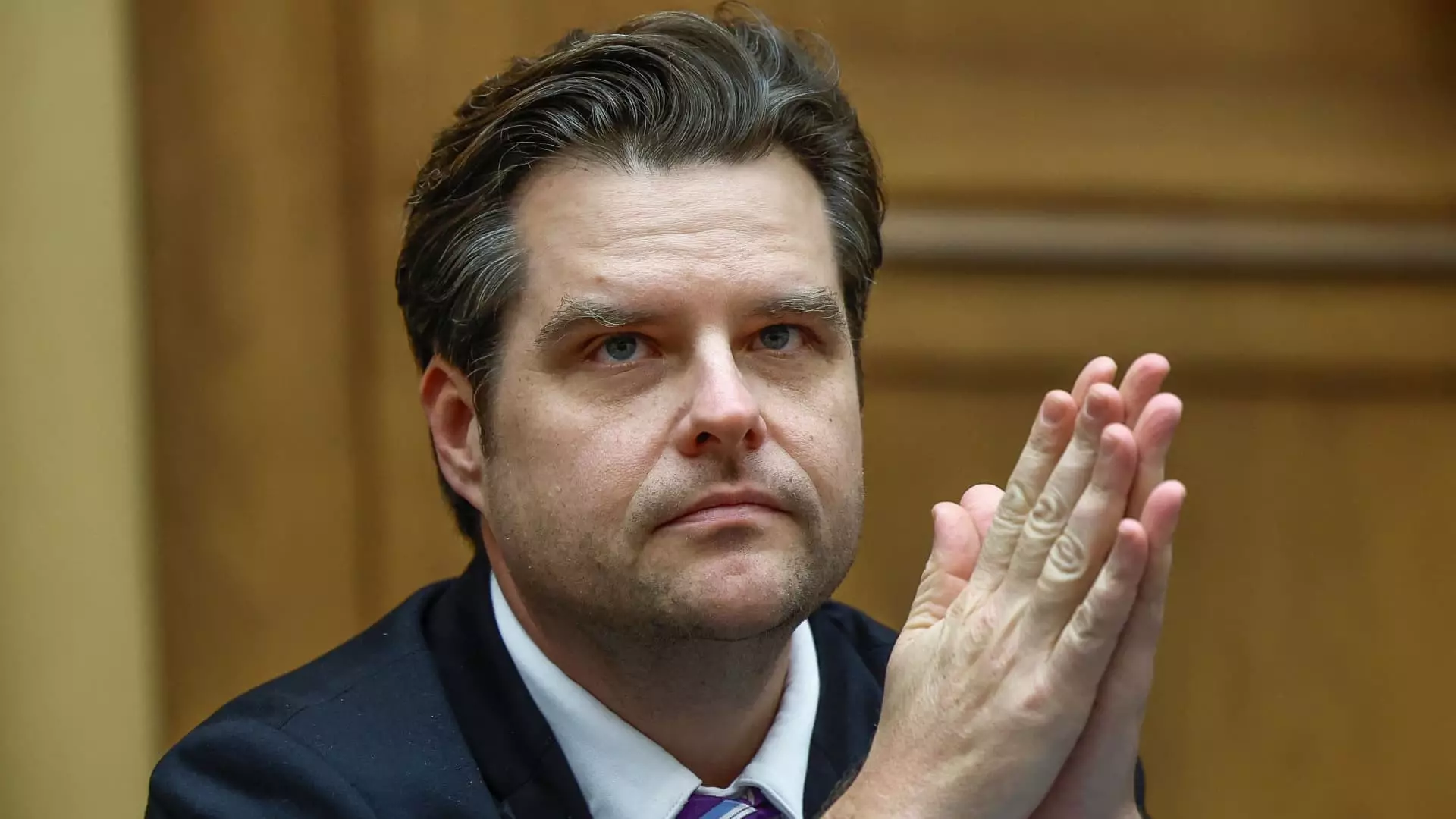The political arena, often a crucible for scrutiny and allegations, now finds itself embroiled in one of the more scandalous chapters of American politics with the findings surrounding former Republican Representative Matt Gaetz. In a comprehensive report released by the House Ethics Committee, substantial evidence emerged linking Gaetz to serious misconduct, including engaging in sexual relations with a minor and financial transactions suggesting a pattern of illegal activity while serving in Congress. This article explores the implications of the report, the responses from those involved, and the broader impact on the political landscape.
The Ethics Committee’s report, an exhaustive 42-page document, unveils a series of troubling accusations against Gaetz, detailing carefully the evidence amassed during a lengthy investigation that began in 2021. The committee concluded that Gaetz had sexual relations with a 17-year-old girl in 2017 and frequently paid women for sex while in office. This revelation is alarming, not only for its immediate implications regarding Gaetz’s moral standing but also for the potential legal consequences stemming from violations of both state and federal laws. The implications reach wider than personal misconduct; they raise questions about the integrity of congressional members and their ability to uphold ethical standards necessary for public office.
The findings of the report characterize Gaetz’s actions as deeply discreditable to the House, asserting violations of various conduct regulations. The Ethics Committee identified breaches pertaining to prostitution, statutory rape, drug use, and accepting gifts in excess of allowed limits. By detailing Gaetz’s payment of tens of thousands of dollars to women, alongside illicit drug use, the report presents a troubling narrative of a politician who, instead of focusing on his responsibilities, allegedly engaged in serious criminal activity.
Furthermore, Gaetz’s behavior draws attention to the essential issue of accountability among public officials. The standards imposed upon government representatives are designed to ensure they serve as models of proper conduct; the breach of these standards by someone in Gaetz’s position necessitates serious examination. This incident may fuel further discussions on the efficacy of the existing regulatory frameworks and the need for more stringent measures to prevent abuses of power.
Interestingly, the timing of the report’s release sparked controversy, with Gaetz suggesting ulterior motives behind its publication close to Christmas Eve. Denouncing the accusations via social media, he framed the timing as a strategic move to undermine his credibility without giving him due process in a courtroom setting. This assertion speaks to a political narrative that often permeates scandals: the idea of victimization by opponents or by the system itself.
Combining these allegations with the backdrop of Gaetz’s failed bid for the position of U.S. Attorney General sheds light on the pressures exerted by political whims and the strategic operations of the Republican Party. His resignation from Congress, which occurred shortly before the Ethics Committee was poised to vote on the report’s release, suggested a desperate maneuver to evade the fallout from his actions. In the concurrent political atmosphere, this episode underscores the complexities facing political figures when allegations surface, broadening the conversation regarding how allegations are handled within the framework of governance.
The aftermath of the report and Gaetz’s subsequent actions resonate beyond his personal narrative. These revelations could potentially affect the Republican Party’s stature, especially in light of previous criticisms regarding Donald Trump’s cabinet appointments and the vetting processes involved. The interplay between Gaetz’s actions and the party’s integrity raises concerns about systemic issues that extend to the highest ranks of government.
Moreover, as the Justice Department ended its investigation into Gaetz without charges, his case exemplifies the often convoluted nature of legal proceedings involving high-profile figures. The inconclusiveness of these investigations, juxtaposed against the Ethics Committee’s findings, presents a profound dichotomy – one where legal proceedings may fail to coincide with ethical standards expected from those in power.
In closing, the report surrounding Matt Gaetz serves as a stark reminder of the pitfalls of political power, where personal actions can lead to broader consequences than often anticipated. As the political arena continues to navigate through issues of ethics, the necessity for transparency and accountability remains paramount. This situation isn’t simply a reflection of one individual but rather a critical examination of the systems in place designed to uphold integrity within one of the most important institutions in the country. The questions now loom: what reforms could be implemented to bolster ethical conduct and detangle the political landscape from allegations of misconduct? The future may demand answers to these pressing inquiries.


Leave a Reply